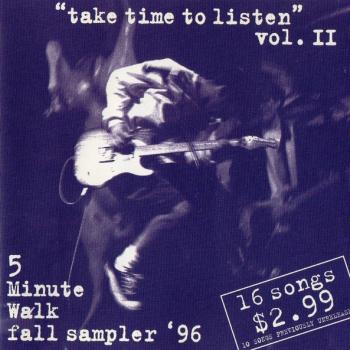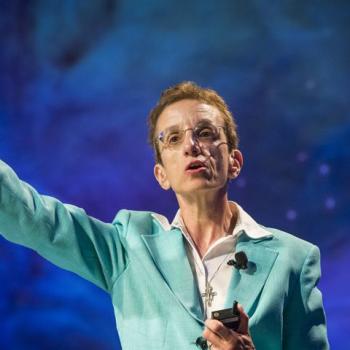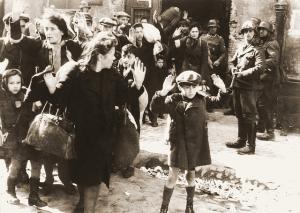
Looking Ahead to Yom Kippur & Sukkot
The Bible clearly tells Christians how to treat their neighbors in several verses. Leviticus 19:18 in the Old Testament says, “You shall love thy neighbor as yourself.” In the New Testament, Christ says we should love God above all else, and the second command is, “You shall love your neighbor as yourself.”
1 John 4:20 adds, “If anyone says, ‘I love God,’ and hates his neighbor, he is a liar; for he who does not love his neighbor whom he has seen cannot love God whom he has not seen.” The Bible cannot be any clearer than these verses. If we as Christians truly love God, we must also love our neighbors.
Then, why do so many of us fail?
I bring up this question – again — because of the upcoming Jewish holidays in late September and early October. With Yom Kippur beginning at sundown this Sunday, Sept. 24 and ending at sundown Monday, followed by Sukkot beginning at sundown Friday, Sept. 29 and ending at sundown Friday, Oct. 6, maybe some of us need a reminder.
The Good Samaritan Reminder
It seems easier to like people who are “like” us, but in the Good Samaritan parable (Luke 10:25-37), Christ tells us that our “neighbors” also are people who aren’t “like” us.
In his parable, Christ was telling Jews that their neighbors included Gentiles, e.g., non-Jews; tax collectors such as the Apostle Matthew; and Samaritans among others.
In our time – for white, heterosexual Christians – the word “neighbors” means non-Christians including Jews, Muslims and people of other religions or no religion. It means the LGBTQ community, people of color, and anyone else who doesn’t fall into our narrow definition of “neighbor.”
Jesus chose the Samaritans in his story to a Jewish audience because these two groups had hated each other for a long time – all the way back to Jacob, whose 12 sons fathered the 12 tribes of Israel.
The tribes of two sons inherited richly abundant land that eventually became Samaria in the northern kingdom of a divided Israel. The Jews who settled in the southern kingdom hated the worship practices of their northern neighbors. They also hated intermarriage with them. The bitterness grew on both sides for the next 500+ years, and the two groups severed ties.
Thus, a Samaritan man was the perfect person in Christ’s parable to help a Jewish man who had been beaten and left for dead while traveling. This, after two Jewish travelers had passed him by without helping.
Christ’s point was clear: Anyone can be our neighbor. Let me say that again: Anyone can be our neighbor, and if Christians truly love God, we will love them.
An Excuse for Violence
Why rehash the parable now? Because of the upcoming Jewish holy days, which in past years have incited non-Jews – including Christians – to violence. The September post by Darren Walker, president of the Ford Foundation, spurred me to write yet another article on antisemitism. (More about the Ford Foundation shortly.)
“One specific sin that stains the conscience of our nation is the resurgent scourge of American antisemitism,” Walker says. “Today, antisemitic bigotry is becoming more brazen — and dangerous.
“During the last five years, the Jewish-American community has endured a record number of hate crimes, a 35% increase between 2021 and 2022,” Walker adds. He also cites the 2018 terrorist attack at Tree of Life Synagogue in Pittsburgh, the 2019 murders of Jews in California, New Jersey and New York, and the hostage situation at a Texas synagogue last year.
“We hear the echoes of violence in the coded language and dog whistles of our conspiratorial and paranoid politics. We scroll through the onslaught of antisemitic expression up and down our social media feeds,” he notes. “We see it in the sinister insinuations about surnames like Soros and Rothschild. We sense its spread in the cancer of Holocaust denial, metastasizing online and off.”
As an American, I think “metastasizing” is the best word to describe the cancer that’s killing our nation.
Treading on Dangerous Ground
Antisemitism is one of the oldest forms of hate, dating back centuries, and it’s intergenerational, Walker says. “One might even draw a parallel between the Jewish communities of the United States today and those of Germany and Austria a century ago, who thought themselves assimilated into their home countries but were condemned as the ‘other.’”
It’s a devastating thought, but I know Walker is right.
“Through the 1920s, hundreds of thousands of people self-identified as German Jews, German first,” he continues in his post, “Rejecting the Rising Tide of Antisemitism,” on the Ford Foundation’s website. Yet, their non-Jewish “neighbors” saw them as Jews and Jews only. And look what happened.
(See my earlier posts, “Antisemitism Is A Problem for Everyone Including Christians here) and “As Antisemitism Reaches Crisis Level, Christians Must Fight. Here’s How…” here.
Walker reminds Americans, “We must look to the lessons of history, which affirm – as do the Jewish high holy days this week – that there can be no reconciliation without atonement, no justice without accountability.
“I feel this obligation acutely as the leader of an institution that protects and promotes democratic values, which also was founded by Henry Ford – an icon of innovation, and industry, and philanthropy, and one of the twentieth century’s most virulent American antisemites.”
Walker points out that Americans — and I might add American Christians — must speak out against antisemitism “as we call out racism, sexism, ableism, and homophobia.”
Walker expresses my beliefs far more eloquently than I can, and I encourage everyone to read his post here. We simply cannot let the haters win this fight for our nation’s very soul.
My Musings
When I look at America’s political and religious landscape today, as we must do because of the intermingling of politics and religion, I see right-wing extremists who preach hatred toward their neighbors, spread their repugnant ideas across the internet, and work to overtake Congress with right-wing extremists, as they already have done in the Supreme Court.
Sadly, all too many of the right-wing extremists loudly proclaim their Christian faith and love for God in the same breath that they spew hatred.
Listening to their vitriolic attacks against people who are somehow different, I recall the Bible’s commands to “love thy neighbor.” Hatred in any form is wrong if you call yourself a Christian.
I often wonder and worry about whether my country will survive as a democracy / republic as our founders intended. I don’t think we will unless Christians show this country and the world what Christ meant by “love thy neighbor.”

















